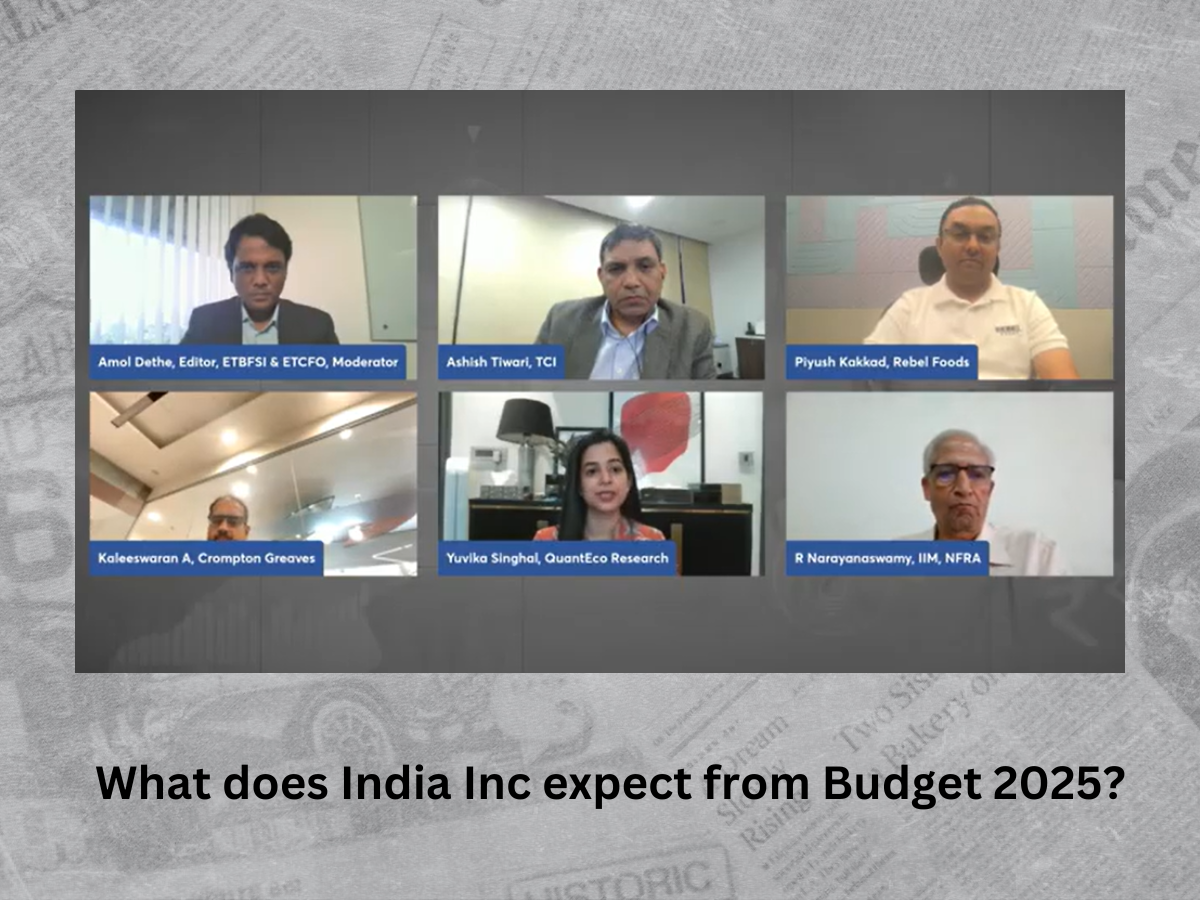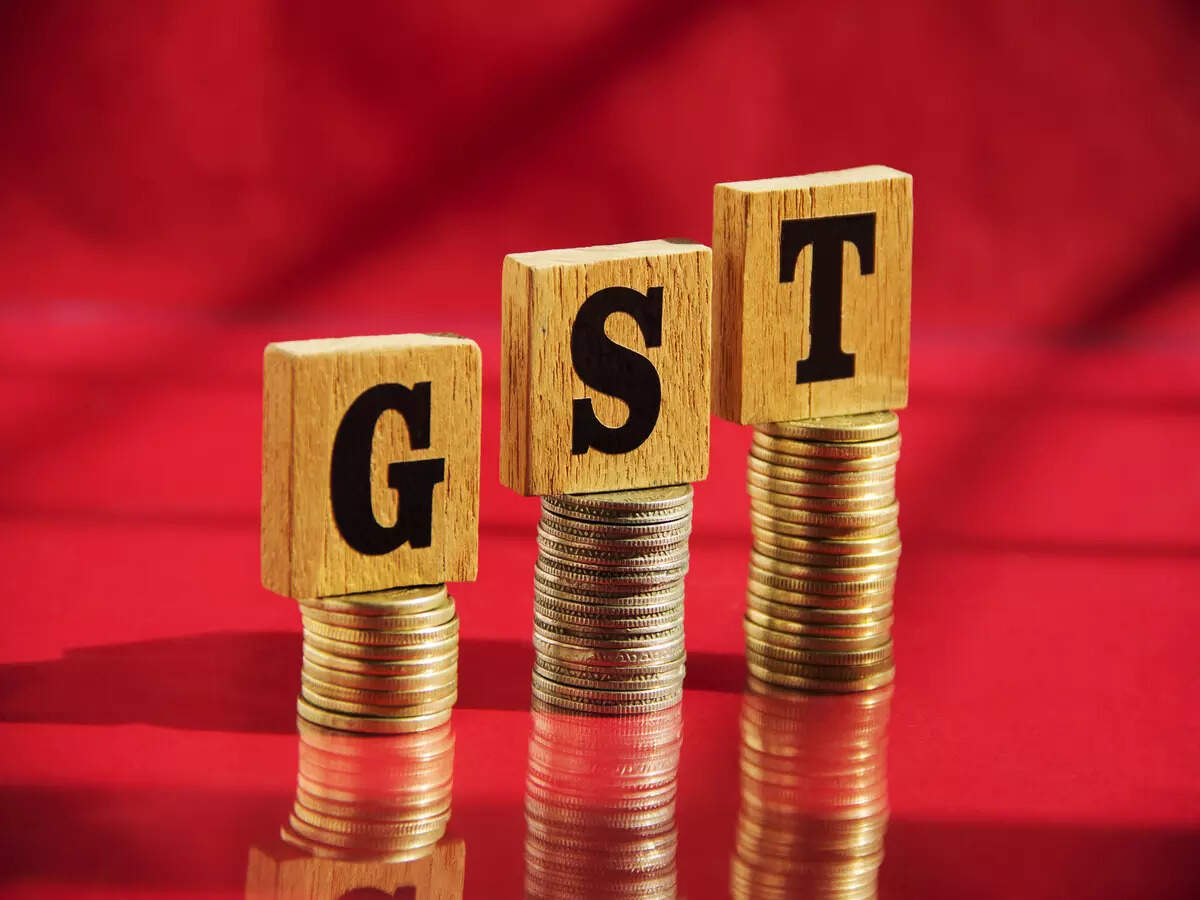- Policy
- 3 min read
Union Budget should focus on non-populist measures, global competitiveness, & GST standardisation
Ahead of the budget run-up, ETCFO is hosting a weekly live series on Union Budget Expectations 2025 with economists, CFOs and industry experts. In this episode, panellists including Yuvika Singhal of QuantEco Research, R Narayanswamy, part-time member of NFRA, and CFOs from Crompton Greaves Consumer Electricals, Transport Corporation of India, and Rebel Foods, shared their perspectives on the priorities for their sectors and the broader economy.In less than a week, Finance Minister Nirmala Sitharaman shall be presenting the Union Budget 2025, while panellists' common stance is fiscal consolidation without compromising growth, the question remains how. They discussed how geopolitical tensions are playing their part disrupting foreign direct investment, tariff wars, protectionism, and hence growth remaining out of government’s hand. What the government can influence, however, is strengthening India’s position globally. Goods and Services Tax (GST) standardisation and ease of doing business are recurring demands whereas there is a lot of work to be done in terms of addressing skill gaps and unemployment.
Click here to watch the first episode.
Fiscal deficit target of 4.5 per cent by FY26
Fiscal deficit, which is the difference between the government's total expenditure and revenue, stood at 5.6 per cent of GDP in FY24, Centre has set a target of achieving 4.5 per cent by FY26.
The interim budget left the government with less than six months of implementation, and that’s where the focus should be, and keeping it non-populist.Centre’s focus should be on achieving fiscal consolidation while maintaining growth, as a GDP of 5.4 per cent in Q2 of FY25 was an eye opener. The subdued growth took place due to elections, heat waves, excessive monsoons.Yuvika Singhal, Economist, QuantEco Research

Making India globally competitiveAnother aspect to look at the fiscal deficit targets is that the optimum level set by the Fiscal Responsibility and Budget Management (FRBM) Review Committee at 3 per cent has already lived its life and it might be pertinent to set up another committeesaid the QuantEco Research Economist.
“Growth is important for fiscal consolidation, employment; it is basically a fundamental characteristic. But the concerning aspect is that it is not in the control of the government,” said R Narayanaswamy, Retired Professor, IIM, Bangalore, and Part-Time Member, National Financial Reporting Authority (NFRA).
Growth is tied more to the global environment which is particularly not very good, we see a lot of protectionist impulses as they want to give priority to their own businesses, which is worrisome, Centre's action should be towards making India competitive.explained R Narayanswamy.

Lastly, nurturing the manufacturing sector as we know what happened with China, especially the China plus one strategy.India has been speaking of K-shaped covery during covid but we are still there, growth hasn't reached the bottom of the pyramid, inflationary pressures have breached levels with the day-to-day consumption cost almost doubling in the last three to four years.said Kaleeswaran Arunachalam, CFO, Crompton Greaves Consumer Electricals.

I would strongly urge the government to address this issue. A fair approach would be to align GST with value addition, ensuring proportional charges. For example, if today a customer is charged 5 per cent with no input credit, it could be rationalised to a 12 per cent charge tomorrow, provided input credit is allowed. This would streamline taxation and support businesses,” said Kakkad.Over time, the GST framework has become increasingly complex, with far too many slabs. Additionally, there are industries where GST input credit is not eligible, significantly increasing the overall cost of doing business. For instance, when businesses invest in capital expenditure, they are unable to claim the 18 per cent input credit, which adds to the financial burden.said Piyush Kakkad, CFO of Rebel Foods.

Skill Gap and Unemployment
He addressed the government's schemes to promote manufacturing and employment further pointing to after-sales service industries as a critical area for creating jobs, particularly for entry-level youth with Industrial Training Institute (ITI) or diploma qualifications.We have made great progress from where we were to making education available for all affordable for all, now it is to make education relevant for all and that needs to be contemporary and we need to revise that on a periodic basis.said Arunachalam of Crompton Greaves and Consumer Electricals.

With 30 per cent of the workforce under 30 years of age and the advent of Artificial Intelligence (AI) and technology, a forward-looking employment policy is imperative.Ashish Tiwari


Comments
All Comments
By commenting, you agree to the Prohibited Content Policy
PostBy commenting, you agree to the Prohibited Content Policy
Post